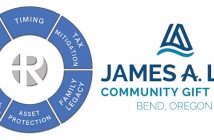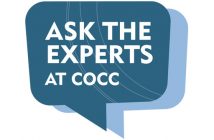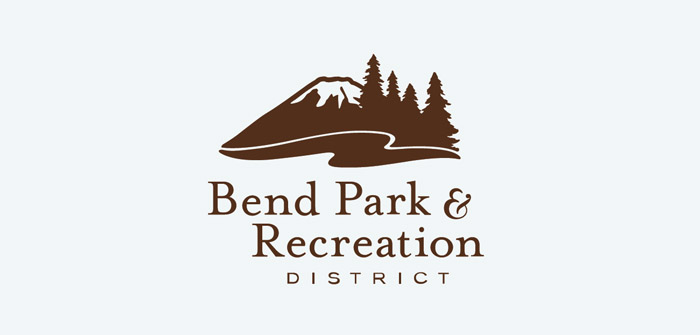If you want to set yourself apart when applying for jobs, it takes much more than having a good resume. Personal websites are a great way to show future employers who you are and why you’d be a good fit within their organization.
Introduction
It is beneficial career-wise to create a personal website in the age of social media.
It will teach future employers much more about who you are as a person than the typical resume can.
But, you need to develop a plan — and you need to stick to it.
In this guide, we’ll review step-by-step how you can develop your own website that’ll show future employers how qualified you are in your field.
We’ll walk you through the brainstorming phase all the way to publication.
1. Starting From Scratch
When you’re coming up with ideas for your personal website, you need to figure out how you want to brand yourself.
What do you want others to be able to learn about you when they access your site?
It’s in your control.
Here are some things you might want to share on your site to start off.
- A few text posts on things you’re passionate about
- Images of you or things you like
- Contact information
- Your career/hobby goals or objectives
- A professional image of you
Once you’ve figured that out, you need to think about the style you’re going for and what type of content you plan to develop and share.
Depending on your career path, there are several different styles you can look into. Here are a few common personal website styles to think about.
- Creative/Artistic
- Informational
- Persuasive/Opinion
At the end of the day, your website should show users who you are. Pick a style and content theme that’s relevant to your interests.
2. Creating Content
Now, what do you plan on putting on your site?
If you consider yourself to be an expert in your field or hobby, you should make every effort to show that on your site. That might mean sharing photos you took if you’re a photographer or writing samples if you’re a writer.
One of the most important things about running a website is having fresh content that’ll appeal to new users.
By not updating your website, you’re risking a loss in viewership and becoming outdated rather fast.
It’s better to take a little longer to set up your site than launch it too early and run out of ideas.
3. Choosing a Hosting Provider
There are endless options when it comes to selecting a hosting provider for your website.
Beware, not all are the same!
If you’ve never developed a website before, you’ll want to look for a provider that’s easy to use and user-friendly.
There are many providers that come with pre-made templates. By selecting one of these templates, you can easily put your own information in and look like a web expert at the same time.
If you’re the type of person that has some HTML or CSS background, some sites still allow you to design your own website from scratch! Keep in mind that this will take much more time.
You’ll also need to begin the process of figuring out what you want on your website, as not all providers will offer everything. Here are some features you should be considering when trying to select a provider.
- The ability to register your own domain name
- Available widgets and plugins
- Style limitations
- Visibility of your website
- Length of the free trial period (if applicable)
The cost may also be an issue.
Many providers will give you the opportunity to make your own website and publish it for free.
However, you might be limited in the features you can use and how often you can publish. You can usually get full access to features by purchasing a monthly plan.
4. Setting Up Your Site
One of the best ways to guarantee that visitors stay on your site is by making a website that’s user-friendly and visually appealing.
If visitors cannot find what they’re looking for, they’ll exit your site and find another that’s easier to use.
You should be creating a layout that’ll help you organize your content and allow users to click through at their own leisure.
You should figure out the different pages you might want to include on your site and what types of content you would include in each.
5. Selecting a Domain Name
The best way to get visitors to your website and to gain authority in your field or hobby is by selecting a strategic domain name.
Here are some qualities you should be looking to include in the perfect domain name for your personal website.
- Terminology related to your field or business
- Your name or business’s name
- If you can, secure a “.com” domain and stray away from less common domain types like “.net”
Registering a domain name will cost you a little money, but it usually isn’t much more than a few dollars a month. It’ll do wonders in setting you apart and making you appear legitimate
The physical setup of your website is probably the easiest part. Actually creating an endless stream of content is much more difficult.
6. Developing Content
If you want people to actually visit your website, you need to be uploading content that people are actually interested in.
Content could be projects you’ve worked on, accomplishments you’ve had, or information about the field you’re currently in.
The best thing you can do is to write about what you know. You won’t interest new visitors if your content is inaccurate or tacky.
7. Attracting Visitors
How will you get visitors?
With a personal website, people should be able to find your website by simply searching your name on the Internet.
But, there are other ways to attract people to your site.
- Search Engine Optimization (SEO): When you create posts or articles on your website, include keywords. The more relevant keywords you’re using, the more likely people will find their way onto your website when they perform Google searches. Your goal is to be one of the first few sites listed when they search.
- Advertising: You don’t have to pay for advertising, but people should know that you have a personal website that you keep up-to-date. You can spread the word via word of mouth, sharing a link on your social media accounts, or including the link in your email signature.
There’s no sense in creating a personal website if you never plan on anyone else seeing it. One of your goals should be to develop some kind of following and assert yourself as an expert in your field.
8. Staying Up to Date
Now that the initial setup is complete, you need to maintain your website.
This is where most people fail.
People might visit your website once. But, getting them to return requires engaging content.
To keep the interest of visitors, you need to constantly be introducing new ideas or content that’ll engage your visitors.
Here are some ways you can determine what type of content you should be publishing.
- Select topics or subject areas that your users interact with most (you can check this through your provider)
- Focus on topics that are increasing in popularity or have just been introduced
- Differentiate the type of content (don’t always write about the same thing, post pictures occasionally, etc.)
- Ask for user feedback
It might help to plan out the type of content you’ll be publishing well in advance. That way you can set up a schedule to publish a certain number of posts every week, day, month, etc.
It’s all about consistency.
If you’re always creating something new, it’ll show your visitors that you’re passionate about your field or hobby.
Conclusion
As of 2020, it’s not uncommon for employers to search your name on the internet to see what comes up. It helps to have your social media accounts locked up to avoid anything personal being used against you in the hiring process.
Yet, you do want employers to find something about you.
Something good.
By having a personal website, future employers can learn more about you and see that you’re passionate about a particular field or hobby.
A solid personal website can help to establish you as an expert in your field and an ideal candidate for any position.
Author Bio:
Aaron Hunt is the property manager for Prime Place OSU. He can be reached by email at osu@myprimeplace.com or by call or text at 405-708-7605.





